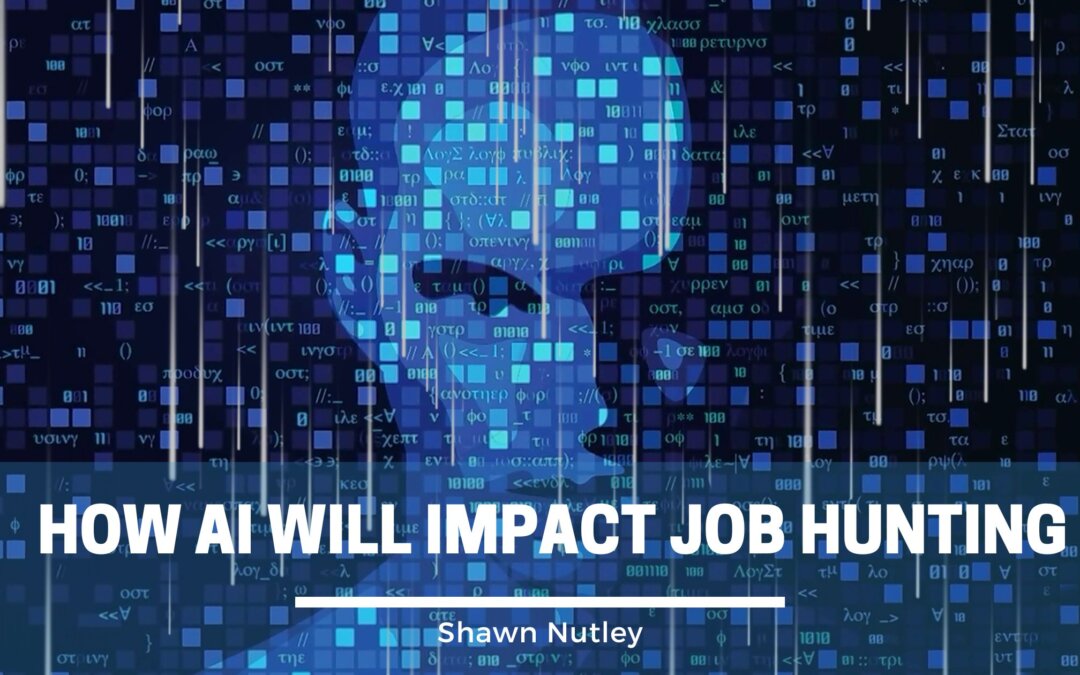As AI continues to evolve, its impact reshapes how job seekers approach their career search and how employers find and recruit talent. Each facet carries significant implications for both sides. Understanding these changes is crucial in navigating the future job market effectively. As we stand on the cusp of this new era, it is imperative to comprehend the dynamics of AI in the job market, preparing ourselves for a future where AI is not just a tool but a pivotal player in our professional lives.
The integration of AI into job hunting isn’t a sudden development but a gradual evolution mirroring AI’s growing role in various sectors. Historically, job hunting and recruitment have been labor-intensive processes involving manual sorting of applications, face-to-face interviews, and subjective decision-making. The Internet brought online job boards and e-applications, yet the core processes remained human-driven. Today, AI is set to take this evolution a step further. AI’s capabilities in processing vast amounts of data, pattern recognition, and predictive analytics enable a more efficient, accurate, and sophisticated approach to recruitment and job searching. This technological shift is driven by the need to manage large volumes of applications, reduce hiring biases, and find the best match between job seekers and positions. Additionally, AI’s role in analyzing labor market trends and emerging skill requirements is becoming increasingly vital. This background sets the stage for understanding how AI’s current applications and potential future developments will impact job hunting, fundamentally altering the strategies and expectations of job seekers and recruiters alike.
Automation of Recruitment Processes
One of the most significant impacts of AI on job hunting is the automation of recruitment processes. AI algorithms are increasingly being used to screen resumes, evaluate candidates, and even conduct initial interviews. This automation offers numerous advantages. For employers, it means a faster, more efficient hiring process with reduced human bias and lower costs. AI can discover the most qualified applicants based on preset criteria by analyzing resumes and applications at a scale and speed that human recruiters cannot match. Furthermore, AI-driven tools like chatbots can provide immediate responses and guidance to applicants, enhancing the candidate experience. However, this shift also brings challenges. There is a growing concern about the fairness and transparency of AI algorithms, as they might keep up existing biases if not properly designed and monitored. For job seekers, this means adapting to a new reality where their resumes and online presence must be optimized for AI systems. They need to understand how these algorithms work and what they value in a candidate. The automation of recruitment processes is a double-edged sword, offering efficiency and speed while necessitating a reevaluation of how we approach the job application process.
Personalization of Job Searches
AI’s ability to personalize job searches represents a paradigm shift in how candidates find employment opportunities. Traditional job searches often involve sifting through numerous irrelevant listings, a time-consuming and sometimes fruitless process. AI changes this by leveraging data analytics and machine learning to provide tailored job recommendations based on a candidate’s skills, experiences, preferences, and past search behavior. This personalization extends to career advice, potential career paths, and even suggestions for skill development. For job seekers, this means a more efficient and targeted job search, increasing the chances of finding relevant and fulfilling job opportunities. On the employer side, AI-driven personalization helps attract candidates who are more likely to be a good fit for the organization, both in terms of skills and culture. However, this level of personalization raises privacy concerns, as it relies on collecting and analyzing personal data. Job seekers must be aware of the data they share and how it is used. Additionally, there is a risk of being pigeonholed into certain roles based on past experiences, potentially limiting exposure to diverse opportunities. The personalization of job searches through AI, while beneficial in many ways, requires careful consideration of privacy and diversity aspects.
Evolution of Skill Requirements
AI’s impact on job hunting is also evident in the evolution of skill requirements. The increasing integration of AI in various industries is not only automating routine tasks but also creating new roles and changing the skills needed for existing ones. This transformation leads to a growing demand for AI literacy and digital competencies across all job sectors. Job seekers must now demonstrate not only their proficiency in their core fields but also their ability to interact with and leverage AI technologies. This necessitates continuous learning and upskilling, as the job market increasingly favors those who are adaptable and tech-savvy. On the flip side, there is a rising concern about the potential for job displacement due to AI automation. While AI may create new job opportunities, it also poses the risk of making certain skills obsolete. This situation calls for proactive strategies in education and workforce development, focusing on skills that are complementary to AI, such as critical thinking, creativity, and emotional intelligence. For employers, this means investing in training and development classes to help staff adapt to AI-driven changes. The evolution of skill requirements is a critical aspect of the future job market, highlighting the need for a dynamic approach to career development and skill acquisition.
Job seekers must navigate a landscape where AI influences not only how they find jobs but also the skills they need to remain competitive. Employers, on the other hand, must balance the benefits of AI-driven recruitment with the ethical implications and the need for a diverse and adaptable workforce. As we move forward, it is imperative for all stakeholders in the job market to understand and embrace the changes brought about by AI. This involves staying informed about AI developments, being proactive in skills development, and critically assessing the impact of AI on job-hunting practices. Ultimately, the successful integration of AI in the job market depends on a collaborative approach, where technology is used not just to optimize processes but also to foster a more inclusive and dynamic job market.

